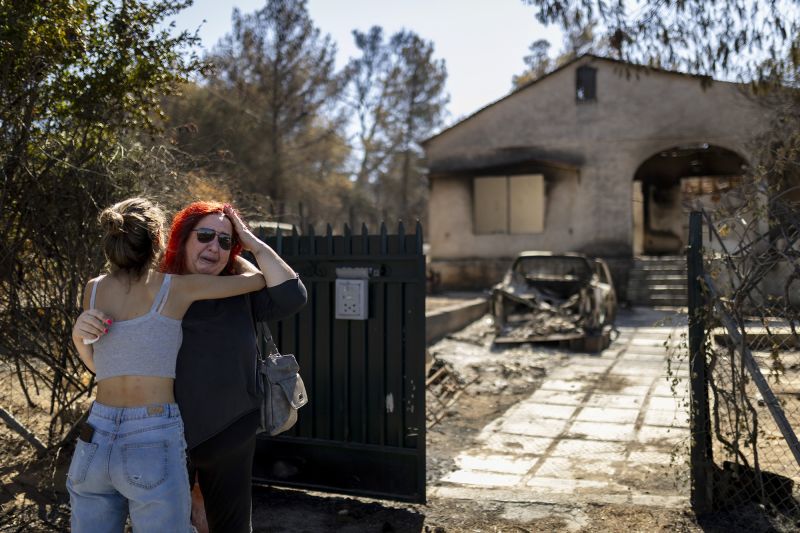 Creating a sustained ceasefire between Israel and Gaza can be highly complex due to several factors:
1. Mutual Expectations: Both Israel and Hamas have their own expectations and demands. Israel typically seeks an end to all forms of attacks, including incendiary balloons and rockets. Meanwhile, Hamas looks for the blockade to end, which has been implemented by Israel since 2007.
2. Role of Mediating Entities: A successful ceasefire deal depends on the intermediaries’ effectiveness, such as Egypt, the United Nations, or other states. Leaders have to trust in these go-between entities for a successful dialogue.
3. Political Situations: The ongoing political dynamics within both Israel and Gaza can pose challenges. For instance, internal political instability within Israel or power struggles between Hamas and other Palestinian political factions could derail talks.
4. Regional Politics: The geopolitics of the broader Middle East, including the role of Iran as an alleged supporter of Hamas, can complicate negotiations.
5. Longstanding Grievances: The complex and multilayered historical issues between Israel and Palestine, including territorial disputes and the status of Jerusalem, add another layer of difficulty.
6. International Pressure: External pressure from the international community, human rights organizations, and public opinion can also affect the negotiations. This pressure may shape the bargaining positions of each party and influence the progress and outcomes of negotiations.
7. Escalation Control: Each party’s ability to manage retaliations and escalations—especially given Israel’s military strength and
Creating a sustained ceasefire between Israel and Gaza can be highly complex due to several factors:
1. Mutual Expectations: Both Israel and Hamas have their own expectations and demands. Israel typically seeks an end to all forms of attacks, including incendiary balloons and rockets. Meanwhile, Hamas looks for the blockade to end, which has been implemented by Israel since 2007.
2. Role of Mediating Entities: A successful ceasefire deal depends on the intermediaries’ effectiveness, such as Egypt, the United Nations, or other states. Leaders have to trust in these go-between entities for a successful dialogue.
3. Political Situations: The ongoing political dynamics within both Israel and Gaza can pose challenges. For instance, internal political instability within Israel or power struggles between Hamas and other Palestinian political factions could derail talks.
4. Regional Politics: The geopolitics of the broader Middle East, including the role of Iran as an alleged supporter of Hamas, can complicate negotiations.
5. Longstanding Grievances: The complex and multilayered historical issues between Israel and Palestine, including territorial disputes and the status of Jerusalem, add another layer of difficulty.
6. International Pressure: External pressure from the international community, human rights organizations, and public opinion can also affect the negotiations. This pressure may shape the bargaining positions of each party and influence the progress and outcomes of negotiations.
7. Escalation Control: Each party’s ability to manage retaliations and escalations—especially given Israel’s military strength and
High-stakes Gaza ceasefire talks resume this week. Here are the main obstacles to a deal

 Creating a sustained ceasefire between Israel and Gaza can be highly complex due to several factors:
1. Mutual Expectations: Both Israel and Hamas have their own expectations and demands. Israel typically seeks an end to all forms of attacks, including incendiary balloons and rockets. Meanwhile, Hamas looks for the blockade to end, which has been implemented by Israel since 2007.
2. Role of Mediating Entities: A successful ceasefire deal depends on the intermediaries’ effectiveness, such as Egypt, the United Nations, or other states. Leaders have to trust in these go-between entities for a successful dialogue.
3. Political Situations: The ongoing political dynamics within both Israel and Gaza can pose challenges. For instance, internal political instability within Israel or power struggles between Hamas and other Palestinian political factions could derail talks.
4. Regional Politics: The geopolitics of the broader Middle East, including the role of Iran as an alleged supporter of Hamas, can complicate negotiations.
5. Longstanding Grievances: The complex and multilayered historical issues between Israel and Palestine, including territorial disputes and the status of Jerusalem, add another layer of difficulty.
6. International Pressure: External pressure from the international community, human rights organizations, and public opinion can also affect the negotiations. This pressure may shape the bargaining positions of each party and influence the progress and outcomes of negotiations.
7. Escalation Control: Each party’s ability to manage retaliations and escalations—especially given Israel’s military strength and
Creating a sustained ceasefire between Israel and Gaza can be highly complex due to several factors:
1. Mutual Expectations: Both Israel and Hamas have their own expectations and demands. Israel typically seeks an end to all forms of attacks, including incendiary balloons and rockets. Meanwhile, Hamas looks for the blockade to end, which has been implemented by Israel since 2007.
2. Role of Mediating Entities: A successful ceasefire deal depends on the intermediaries’ effectiveness, such as Egypt, the United Nations, or other states. Leaders have to trust in these go-between entities for a successful dialogue.
3. Political Situations: The ongoing political dynamics within both Israel and Gaza can pose challenges. For instance, internal political instability within Israel or power struggles between Hamas and other Palestinian political factions could derail talks.
4. Regional Politics: The geopolitics of the broader Middle East, including the role of Iran as an alleged supporter of Hamas, can complicate negotiations.
5. Longstanding Grievances: The complex and multilayered historical issues between Israel and Palestine, including territorial disputes and the status of Jerusalem, add another layer of difficulty.
6. International Pressure: External pressure from the international community, human rights organizations, and public opinion can also affect the negotiations. This pressure may shape the bargaining positions of each party and influence the progress and outcomes of negotiations.
7. Escalation Control: Each party’s ability to manage retaliations and escalations—especially given Israel’s military strength and

